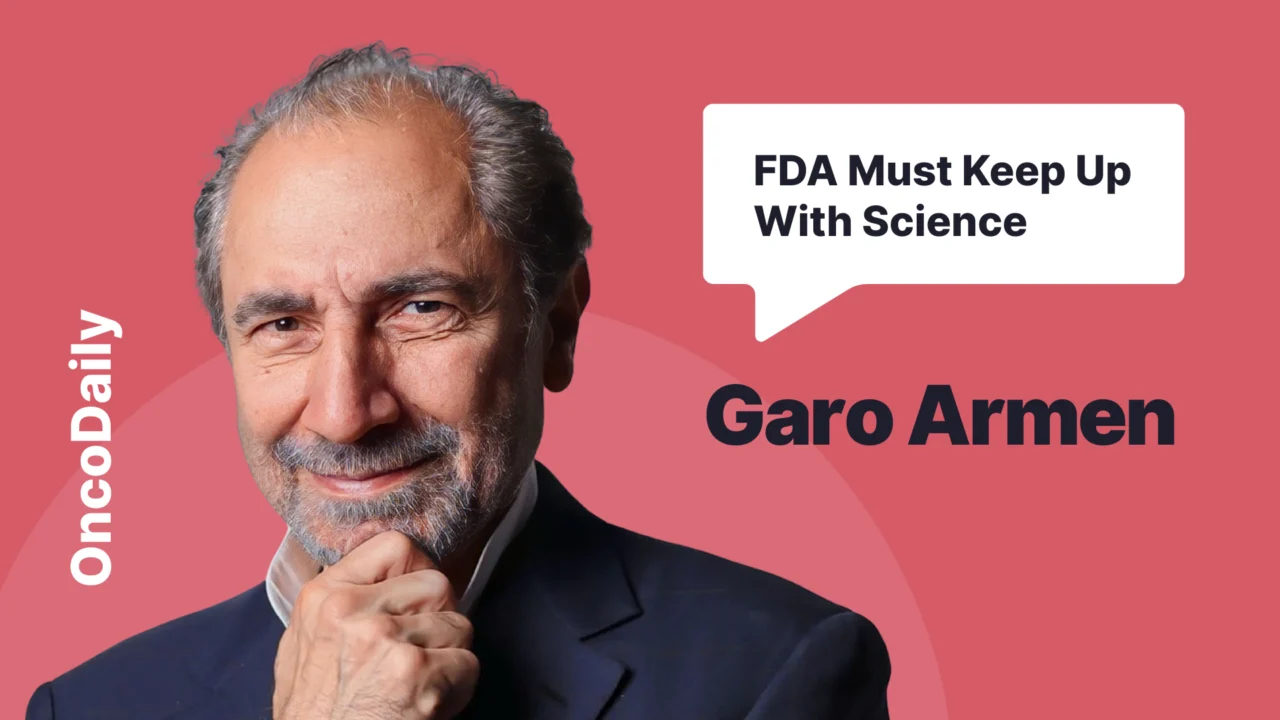In his latest article for DC Journal, Dr. Garo Armen, Chairman and CEO of Agenus, issues a compelling call to action: the FDA must rapidly evolve its regulatory frameworks to keep pace with breakthroughs in cancer immunotherapy, precision medicine, and translational science.
FDA Must Keep Up With Science
“One or two nights a week, I get a call from an unknown number. On the other end is a frightened patient – or more often, a parent – searching desperately for a treatment that might save a life.
Too often, I can’t help. Time and again, tragically, the only difference between getting the patient a potentially life-saving treatment or not is government bureaucracy. President Trump’s team at the FDA needs to ensure that the government is keeping up with science.
Not long ago, the parents of a 21-year-old woman from Italy called me. She had colon cancer – a diagnosis that was once almost unheard of in someone so young, but is now disturbingly common. Her parents asked for an immunotherapy combination that my company is developing. After many delays, she finally began treatment. She is still alive. But she almost didn’t get the chance.
I have received multiple requests from a doctor at a major hospital in the United States, seeking to use this treatment on children diagnosed with cancer. Regulatory lawyers keep telling me that providing it will risk a rebuke from the FDA.
I know what it’s like to run out of options. Before I left Istanbul in the 1970s, my mother was diagnosed with breast cancer. Surgeons there removed her breast. I brought her to the United States for experimental treatments, hoping for a cure. We lost her. The doctors told us, as they told so many families then, that the best they could do was cut the cancer out with a knife.
That loss changed my life. I left a Wall Street career and returned to my previous work in science, founding Agenus in the 1990s to bring patients better options.
Decades later, the options for cancer patients are still far too limited – not because of a lack of scientific talent or resources, but because of a regulatory culture that lags the latest and most innovative science. President Trump’s appointment of Dr. Marty Makary as FDA Commissioner was widely received as a sign that this would change, spurring hopes for researchers and, above all, for patients and their families. The new leadership has done excellent work in attacking what is likely the root of the problem for many cancers – unhealthy, ultraprocessed food – but now the agency must confront the cancer crisis head-on.
Even though cancer death rates have dropped by nearly one third since I began this work 30 years ago – mainly due to a massive decline in smoking – about half of cancer types are actually rising in incidence for younger generations. We still can’t fully explain the reasons for this, but the facts are undeniable. My kids’ generation is twice as likely to develop gastrointestinal cancer as my generation, and colorectal cancer is projected to be the leading cause of cancer death for Americans under 50 within the next five years.
Famous cases include the influencer Tanner Martin, who died at 30 in June, and actors Chadwick Boseman and James Van Der Beek. This is a ticking time bomb for two generations of Americans. America’s growing population of young cancer patients demands that the FDA evolve faster than the cancer cells that threaten their lives.
Since the 1980s, the standard of care for these cancers has been chemotherapy, radiation, and surgery, each of which can bring devastating downsides in exchange for all too little survival benefit. Chemotherapy is essentially poison – with the hope that the cancer dies before you do. Radiation can lead to permanent infertility, and surgery sometimes leaves patients hooked up to a colostomy bag and unable to control their bowel movements for the rest of their lives. Younger patients in the prime of life especially want less toxic treatments that lead to a cure. The most scientifically advanced nation in history surely can and must do better than cutting, burning, and poisoning.
President Trump deserves an FDA that delivers on his promise to accelerate innovation. Science continues marching forward. New discoveries are being made. A new generation of immunotherapies is in development that work differently from earlier, less effective and more toxic therapies, giving patients much better options than my mother had. I believe that one day cancer care will be done not with a knife, but by teaching the immune system to kill cancer. Yet this future will only be possible if the FDA can finally start to keep up with the speed of science.”
You can find more posts featuring Garo Armen on OncoDaily.


